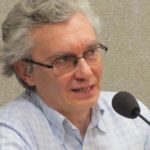ISLAMIC CIVILIZATION AND ITS RELATIONSHIP WITH OTHER CIVILIZATIONS الحضارة الإسلامية وعلاقتها بحضارات أخرى
About Course
Free online course, aimed primarily at Muslim religious personnel, especially those who have attended PriMED project training courses. The course is proposed within the project PriMED - Prevention and Interaction in the Mediterranean Space, funded by the Ministry of University and Research. Misunderstandings, prejudices and misinterpretations in communication and coexistence can arise between people from different cultural, linguistic and religious backgrounds. These problems are based on gaps in anthropological knowledge, superficial experiences, and hasty conclusions. A different approach can uncover common aspects that can be of help to all.Description
Relations and exchanges have characterised the history of every civilization for centuries. No civilization can be considered as isolated, and the ways in which it has developed and continues to change do not only come from within. Especially Christianity and Islam, as universal religions spread all over the earth, have always mediated with peoples of different cultures and languages. Today, in particular, each religion has to face the challenges of scientific and technological modernity, which through ‘globalization’ has reached every corner of the world. In some respects, these are challenges shared by traditional faiths in the face of great and rapid change, but each of them has its own particularly problematic areas that call for reinterpretation on the basis of new knowledge and new questions. Intercultural and interreligious dialogue can help believers of different faiths to get to know each other and work together for the benefit of the whole human race.
What Will I Learn?
- If properly conceived and managed, questions about 'others' also become self-reflection and open up otherwise unimaginable horizons of knowledge and action.
Topics for this course
Islamic Civilization and Its Relationship with Other Civilizations
About the instructor
Paolo Branca
Instructor
1 Courses
0 students
